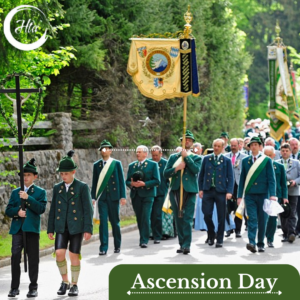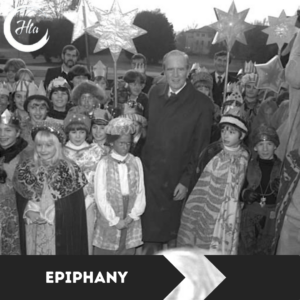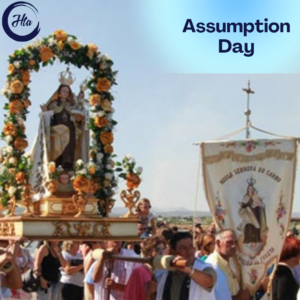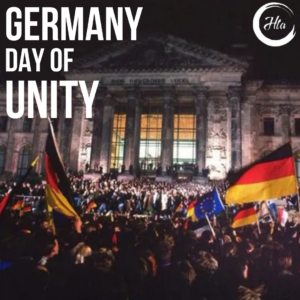Public Holidays in Germany
Public holidays in Germany are a vibrant tapestry of cultural, historical, and religious celebrations that reflect the nation’s rich and diverse heritage. These days of observance hold profound significance for Germans, both as a time for reflection on their past and as opportunities to revel in their present. Steeped in tradition and marked by a sense of communal togetherness, these holidays offer a fascinating glimpse into the country’s unique customs and values. From the solemn remembrance of historical events to the exuberant festivities that bring communities together, public holidays in Germany encapsulate the essence of the nation’s identity and the enduring spirit of its people. Here, we will explore German public holidays will shed light on the most prominent and cherished occasions, highlighting their origins, cultural importance, and the diverse ways in which they are celebrated across this captivating nation.
What are the Different Types of Holidays Celebrated in Germany?
Germany celebrates various types of holidays, including:
Public Holidays (Feiertage): These are nationwide holidays observed throughout Germany. Examples include New Year’s Day (Neujahrstag), German Unity Day (Tag der Deutschen Einheit), and Christmas Day (Weihnachtstag).
Regional Holidays (Länder-Feiertage): Some holidays are specific to certain regions or federal states in Germany. For instance, All Saints’ Day (Allerheiligen) is only observed in certain states.
Religious Holidays: Germany has both Christian and non-Christian holidays. Christmas (Weihnachten) and Easter (Ostern) are significant Christian holidays, while holidays such as Eid al-Fitr and Eid al-Adha are observed by the Muslim community.
Cultural and Historical Observances: Certain holidays commemorate cultural or historical events, like Reformation Day (Reformationstag) and Day of Remembrance for the Victims of National Socialism (Gedenktag für die Opfer des Nationalsozialismus).
Civic Holidays: Some holidays celebrate civic achievements and milestones, such as Labor Day (Tag der Arbeit) on May 1st.
Silent Days (Stille Tage): Certain days, like Good Friday (Karfreitag) and All Saints’ Day, are considered “silent days” with restrictions on loud activities and events.
Customary and Seasonal Celebrations: Events like Carnival (Karneval), Oktoberfest, and the Christmas season have festive significance and are celebrated with various traditions and activities.
It’s important to note that holidays can vary by region, and some are specific to certain religious or cultural groups within the country. Additionally, local festivals and events add to the rich tapestry of celebrations in different parts of Germany.
Upcoming Public Holidays in the Years Ahead
Source: bunde.de
Note: These dates might change if officials make announcements. So, check back here often for updates.
List of Public Holidays in Germany:
- New Year’s Day (January 1) – Celebrated on the first day of the year, marking the beginning of the new calendar year.
- Epiphany (January 6) – Also known as “Three Kings’ Day,” it commemorates the visit of the Magi to the infant Jesus.
- International Women’s Day (March 8) – A day to recognize and celebrate the achievements and contributions of women worldwide.
- Good Friday – Observed on the Friday before Easter, commemorating the crucifixion of Jesus Christ.
- Easter Sunday – Celebrates the resurrection of Jesus from the dead, a central event in Christianity.
- Easter Monday – The day after Easter Sunday, often a public holiday with various cultural traditions.
- Labour Day (May 1) – A day to celebrate the achievements of workers and the labor movement.
- Ascension Day – Marks the ascension of Jesus into heaven, observed 40 days after Easter.
- Whit Sunday
- Whit Monday – The day after Pentecost, commemorating the descent of the Holy Spirit upon the apostles.
- Corpus Christi – Celebrates the Eucharist and the body of Christ, observed on the Thursday after Trinity Sunday.
- Assumption Day (August 15) – Commemorates the Virgin Mary’s assumption into heaven.
- Day of German Unity (October 3) – Celebrates the reunification of East and West Germany in 1990.
- Reformation Day (October 31) – Commemorates Martin Luther’s posting of the Ninety-Five Theses in 1517.
- All Saints’ Day (November 1) – Honors all saints, known and unknown, in various Christian traditions.
- Repentance Day – A day of reflection and prayer observed in some states, usually a church holiday.
- Christmas Day (December 25) – Celebrates the birth of Jesus Christ.
- 2nd Day of Christmas (December 26) – A second day of Christmas celebrations and a public holiday.
Plan Your Trip Now!!!














